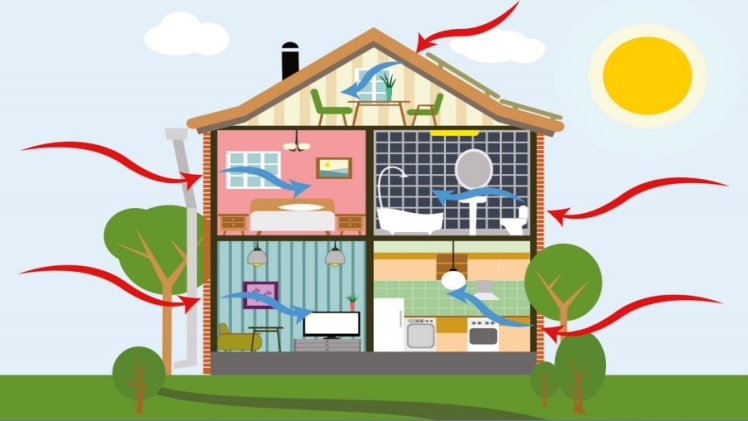We might still be in the midst of summer but many of us are starting to think about how to keep heating costs down in preparation for the winter months. While the focus here is on boosting the energy efficiency of residential spaces, it’s also valuable for organizations and businesses to explore renewable energy options. Solar power, in particular, represents a sustainable and cost-effective solution. Those interested in understanding how solar investments can benefit commercial entities, including FAQs on implementation, costs, and benefits, can find comprehensive insights by exploring commercial solar FAQS. This resource is especially useful for nonprofits and businesses considering a transition to solar energy, offering guidance on navigating federal funding opportunities and maximizing their investment in clean energy.
The average annual cost of energy for a typical three-bedroom household still stands at around £2,100, though prices are down from their height of 2022. Whether the decrease continues remains to be seen, especially with the ongoing conflict in Ukraine.
But there are a few steps you can take to help bring down the cost of your energy this coming winter. And, as well as saving money, you’ll be helping the environment too.
Limit drafts
The easiest way to prevent the heat escaping is to reduce any drafts. You should check areas such as around external doors and windows, especially those which give access to loft spaces and cellars.
If you do find that you have drafty areas, expanding foam can help insulate the gaps around window and door frames. If your windows and doors are old and worn, however, you might want to look into replacing them for maximum energy saving.
Wall insulation
Depending on the age of your home, you might have cavity walls which means there’ll be space between your external walls and the plasterboard. This can be a key source of energy loss. The good news is that it doesn’t cost a great deal to have cavity wall insulation added to your home and it’s well worth the investment in the long run.
If you have a loft that creates significant heat escape, then you might want to consider adding loft insulation too.
Solar panels
Although these are considered a rather costly investment, they pay off in the long-term and essentially provide a source of free energy for your home.
Solar panels are worth adding if you’re planning on staying in your home for the near future and the majority of the energy you use is electric. They can be especially useful if your household owns electric vehicles.
Despite what you might think, solar panels don’t need constant direct sunlight to charge either so don’t let the great British weather put you off investing.
New boiler
Replacing your old boiler can be expensive but it can greatly improve your home’s efficiency. Consider getting an upgrade if yours is proving unreliable or you’re using a lot more energy than you should be for your home.
It’s also worth checking to see if you qualify for the government Boiler Upgrade Scheme.
Finally, as well as following the steps above, it’s a good idea to get into the habit of switching off lights when you’re not using them and turning radiators off or down in rooms you use the least.

